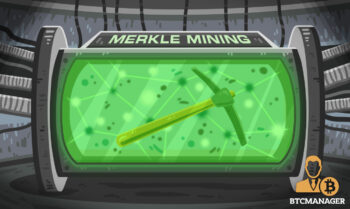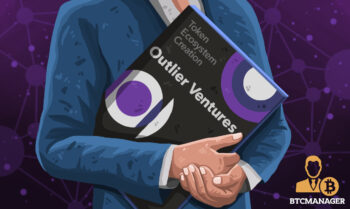2024-11-6 16:37 |
As the world accelerates towards a more interconnected, AI-driven future, OMNIA is positioning itself to lead the next wave of innovation within decentralized physical infrastructure networks (DePIN).
Since its inception, OMNIA has been known for providing robust, decentralized RPC nodes. However, we believe it’s time to evolve. Unveiling a bold vision for the future: transforming OMNIA into the premier infrastructure for autonomous AI agents capable of operating without interruptions or constraints.
This vision marks a shift towards a new kind of ecosystem, where DePIN supports not only decentralized data transmission but also sophisticated, intelligent AI agents that operate independently and continually, powered by decentralized compute networks.
In this article, the big picture is being painted—OMNIA’s vision for autonomous agents, how the laying of the groundwork with proof-of-concept projects, the rollout of OMNIA GPT, and future plans for crowdsourced AI infrastructure. Aiming to make OMNIA the go-to decentralized platform for AI-driven solutions that reshape how information is being managed, make decisions, and interact across on-chain and off-chain networks.
The Big Vision: Decentralized Infrastructure Meets Autonomous AI AgentsImagine a world where AI agents operate autonomously, handling everything from blockchain transactions to content creation and customer service, all without the need for direct human intervention. These agents will be able to understand context, make decisions, communicate across platforms, and act independently on behalf of their users.
This is OMNIA’s vision for the future. By combining decentralized infrastructure with cutting-edge AI capabilities, enabling a world where anyone can deploy autonomous agents capable of thinking, managing on-chain wallets, interpreting and processing information from multiple sources, and executing actions across channels seamlessly. These agents could become financial advisors, customer support bots, content curators, data analysts, or even self-managing asset managers—transforming industries, streamlining operations, and ultimately making life easier for their users.
OMNIA’s Current Position: Decentralized RPC Nodes as a Strong FoundationSince the inception, OMNIA has focused on delivering decentralized RPC (Remote Procedure Call) services that provide blockchain networks with secure, reliable, and resilient access points. In essence, great work towards the empowerment the blockchain ecosystem by decentralizing RPC infrastructure, ensuring that users can access decentralized applications (DApps) in a way that is censorship-resistant, secure, and highly available.
Decentralized RPC nodes are the backbone of a truly resilient DePIN. Without centralized points of failure, OMNIA’s network can support diverse applications with consistent uptime, reliable service, and secure transaction handling. This foundation of decentralized RPC nodes allows for the infrastructure to expand naturally into AI and autonomous systems, providing the security, flexibility, and operational resilience required for intelligent agents to operate around the clock.
Phase 1: Proof of Concept (PoC) with Natural Language ProcessingAs a first step toward realizing the vision, OMNIA is exploring a proof of concept (PoC) that utilizes natural language processing (NLP) to create a user-friendly experience for on-chain data analysis. This PoC enables OMNIA users to engage with the blockchain ecosystem through conversational interfaces, making it easy for non-technical users to understand their on-chain exposure, track their activity, and make informed decisions without needing specialized blockchain knowledge.
Through this PoC, viability is being shown how natural language interfaces can bridge the gap between complex blockchain data and human understanding. For example, users can query their transaction history, assess portfolio performance, or monitor account activities in plain language, making blockchain data accessible and actionable for everyone. This intuitive interface is the first step in demonstrating how OMNIA’s infrastructure can support autonomous AI-driven interactions.
Phase 2: OMNIA GPT – Empowering Users with Conversational Blockchain InsightThe next step in OMNIA’s evolution is OMNIA GPT, a conversational AI assistant that gives users greater access to blockchain information through dialogue. By rolling out OMNIA GPT to theentire user base, allows to empower users to interact with blockchain data in an unprecedented way. OMNIA GPT can interpret user queries, respond with contextually relevant insights, and even guide users in managing their on-chain assets or exploring blockchain ecosystems.
For instance, a user might ask OMNIA GPT about their current token holdings, transaction history, or network fees, and OMNIA GPT will respond with clear, informative answers. This capability transforms OMNIA from a technical infrastructure provider into a more accessible, user-centered platform.
By integrating conversational AI, not only that usability is enhanced but also sets the stage for the next phase—supporting fully autonomous AI agents capable of navigating the blockchain independently.
This feature is currently being rolled out in small batches to the entire user base.
Phase 3: Enabling Decentralized AI Infrastructure with Crowdsourced ResourcesTo support the autonomous AI agent ecosystem, OMNIA is working toward creating a decentralized infrastructure that leverages crowdsourced resources. In the near future, users will be able to contribute their personal resources—such as idle computing power from home computers, GPUs, or servers—to support AI infrastructure. This crowdsourced model allows OMNIA to build a scalable, decentralized, and resilient compute network that can power a multitude of AI applications and agents.
By democratizing access to AI infrastructure, OMNIA will enable individuals to become active participants in the AI ecosystem. Users who contribute resources will be able to monetize their assets and receive rewards, incentivizing widespread participation. This approach allows to build a decentralized, cost-effective AI network, creating the foundation for AI-driven applications without reliance on centralized compute power.
The vision is to make AI infrastructure as decentralized as the blockchain itself. In doing so, OMNIA will not only support its own AI agents but also provide third-party developers and businesses with the ability to deploy and scale their own autonomous systems.
The Future of Autonomous Agents with OMNIAOMNIA’s vision extends far beyond simply deploying RPC nodes or conversational AI. The ultimate goal is to empower individuals to deploy autonomous AI agents that operate in a fully decentralized manner. These agents will have the capability to interact with both on-chain and off-chain sources, manage on-chain wallets, and make intelligent, data-driven decisions—all without human intervention.
Here’s a look at the features and capabilities OMNIA aims to offer in the near future:
Autonomous Decision-Making: AI agents will have the ability to interpret data, weigh options, and make decisions autonomously. This includes deciding when to execute trades, initiate transactions, or engage with other agents—all based on real-time conditions and user-defined parameters. On-Chain and Off-Chain Interactions: OMNIA will support agents that can communicate and act across both blockchain-based networks and traditional off-chain environments. This opens up possibilities for AI agents to act as cross-platform decision-makers, transferring information and insights between blockchain applications and external systems. Secure Wallet Management: OMNIA’s decentralized infrastructure will support agents with secure, autonomous wallet management. Agents will be able to access, manage, and execute transactions from designated wallets, allowing them to act independently on behalf of their owners. Cross-Channel Communication: Autonomous agents will be capable of monitoring and interacting across multiple communication channels—from social media to on-chain networks. This means an agent could monitor on-chain metrics, alert its user on Telegram or Discord, and even execute transactions based on real-time insights. Marketplace for AI Agent Deployment: In the future, OMNIA will offer a marketplace where users can deploy AI agents trained for specific tasks or industries. For instance, you could deploy an AI agent specialized in portfolio management, marketing analytics, or customer service, each tailored to your unique needs. Real-World Applications: Transforming Industries with Autonomous AIThe applications for OMNIA’s decentralized, AI-driven infrastructure are virtually limitless. Here are just a few of the ways this technology could reshape industries:
Finance: Autonomous agents could monitor and manage portfolios, detect market trends, execute trades, and offer personalized financial advice based on real-time data. Customer Support: Businesses could deploy AI agents to handle customer inquiries, troubleshoot issues, and provide 24/7 support across multiple channels without the need for human agents. Supply Chain Management: AI agents could autonomously monitor supply chains, detect disruptions, and optimize operations by leveraging on-chain data and IoT signals. Media and Content Creation: Agents could curate content, analyze social media trends, and publish updates autonomously, providing users with real-time insights and dynamic content. Personal Assistants: Individuals could have AI agents that manage their schedules, monitor their online presence, or handle administrative tasks autonomously, freeing up their time for other pursuits. The Path Forward: A Decentralized, AI-Driven FutureOMNIA’s journey is only just beginning. As one advance towards a world where autonomous AI agents operate independently across decentralized networks, the building of infrastructure to make that future a reality is happening. This path is a bold one, requiring innovation, dedication, and a commitment to decentralization—but with each step, the movement of getting closer is happening, to a world where AI agents serve us autonomously and seamlessly.
Now an invitation is made to join OMNIA on this transformative journey. Whether you’re an enthusiast, a developer, or a business seeking to leverage decentralized AI, OMNIA provides the infrastructure to empower your vision.
The post OMNIA’s Visionary Path: Building the Foundation for Decentralized Autonomous AI Agents in DePIN Networks appeared first on BeInCrypto.
Similar to Notcoin - Blum - Airdrops In 2024
Decentralized Machine Learning (DML) на Currencies.ru
|
|























